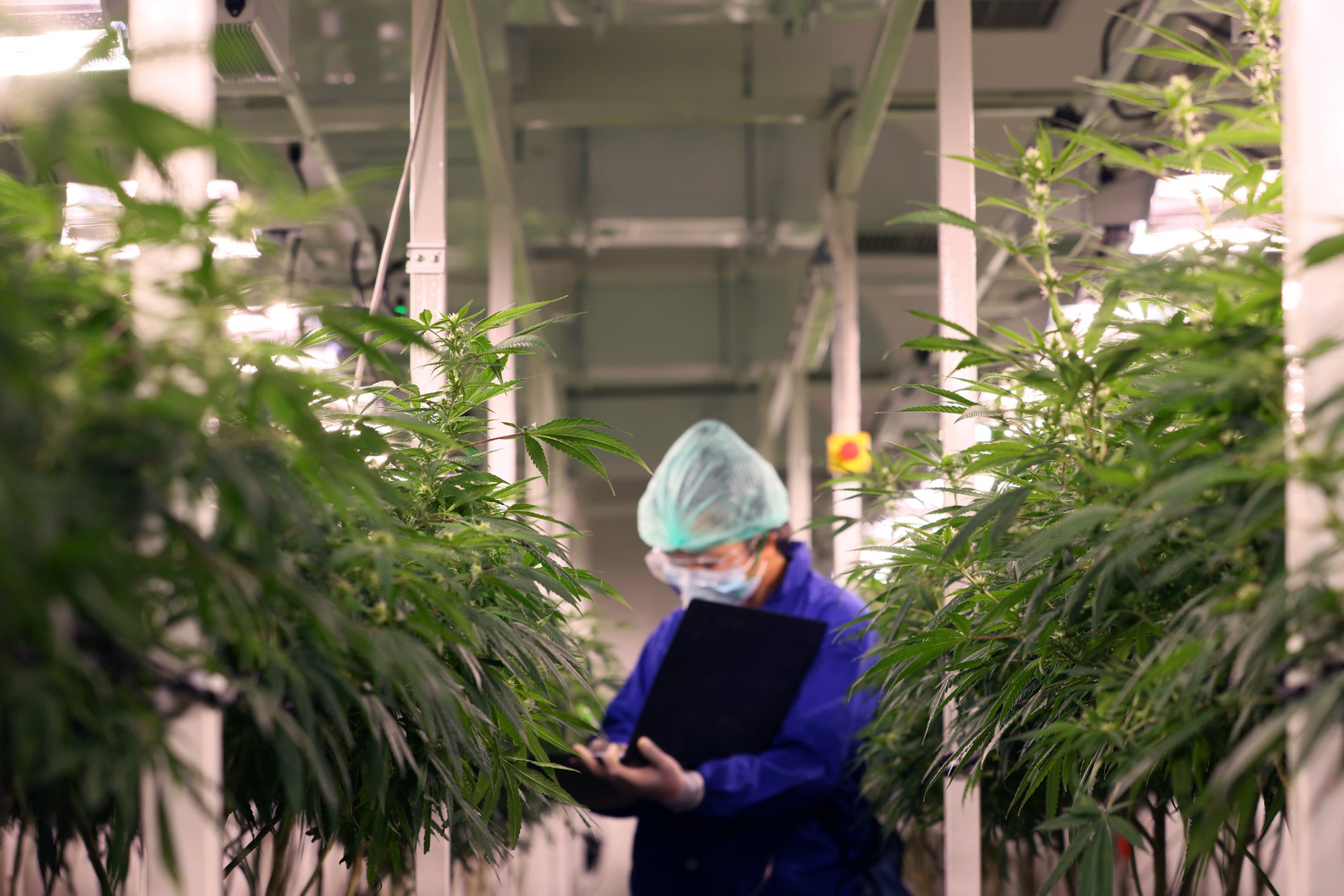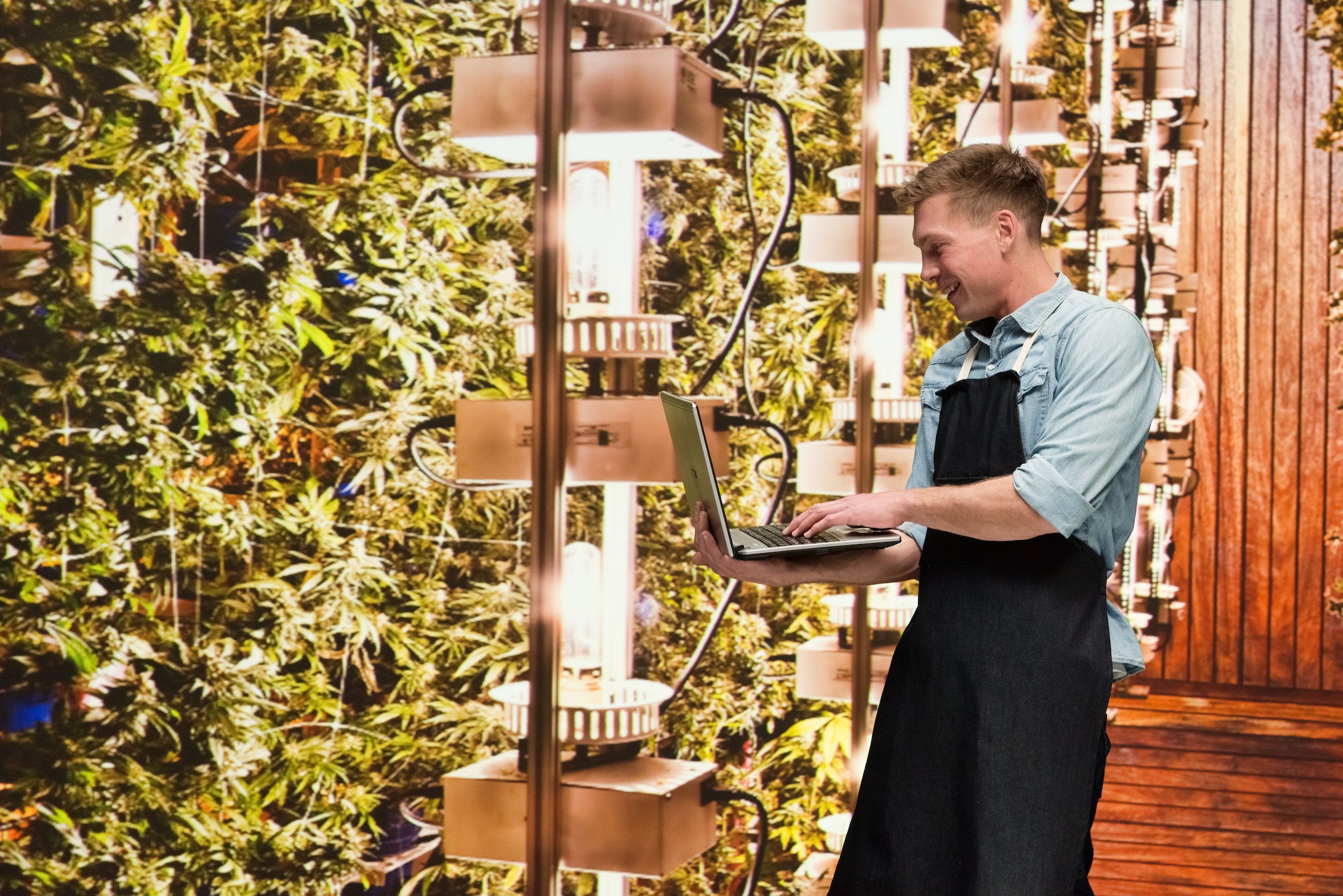Wall Street loves a good story and, usually, takes story stocks to extreme heights. When reality creeps in, such previously adored stocks generally fall hard as investor enthusiasm wanes. That's exactly what has taken place in the marijuana space, with some of the biggest names in the industry hitting the skids lately. That's why investors might prefer an industry supplier like real estate investment trust (REIT) Innovative Industrial Properties (IIPR +1.40%). There's a lot to like about this owner of grow houses, but there are risks to consider here, too.
A picks-and-shovels play
Innovative is an interesting way to gain exposure to the marijuana space because it doesn't actually grow anything. It owns the facilities in which the plant is grown and leases them out to growers. The story behind the long-term growth potential for marijuana sales is still largely the same (and huge), even if the enthusiasm for pot growers has died down. Simply put, as long as there is an increasing demand for cannabis, there is likely to be increasing demand for the facilities in which pot is grown.

Image source: Getty Images.
As a landlord, Innovative collects its rents and doesn't have to worry about selling marijuana into a competitive market. In fact, it uses a net lease model. That means that its lessees are generally responsible for most of the costs of the facilities they occupy. And Innovative tends to signs long-term leases, with an average lease length of around 15 years, that include annual rent increases of roughly 3% to 4%. It's a solid business model.
Innovative has been growing quickly, expanding its portfolio from one property in December 2016 (bought following its initial public offering) to 30 as of September 2019. Being in a growing industry (no pun intended) is one reason for the swift portfolio expansion. But another key reason that Innovative is finding so much demand is the complex legal issues around marijuana. Many banks are unwilling to lend to the upstart industry. Selling a grow house to Innovative and then leasing it back is a way for a cannabis company to raise growth capital. And with limited access to other capital, Innovative is able to lock in some pretty impressive rates of return (the REIT's yield on invested capital is in the mid-teens).
Owning physical assets, meanwhile, provides a solid foundation for Innovative. In a worst-case scenario, it can sell the properties it owns. But if it loses a tenant, it is more likely to try to find a new one or repurpose an asset and lease it into a different industry. Either way, the physical property retains at least some (if not most) of its value.
And, last but not least, Innovative is a financially strong company. Much of its growth has been funded by selling stock to a very willing market. It only recently started using debt at all. In fact, at the end of the second quarter, debt only accounted for around a third of the capital structure -- a very modest figure.
Coming off its high
Essentially, there are a lot of reasons to like Innovative and its approach to the marijuana space. That includes the fact that, as a REIT, it pays dividends (the current yield is around 3%). But that doesn't mean that there are no risks. In fact, the stock price, while still up over 100% so far this year, is down 30% from its high. That's better than some of the once-hot cannabis growers, which have fallen as much as 80% from their peaks. However, even a boring property owner can get swept up into the Wall Street hype machine, and, at least to some degree, that's been true for Innovative. Its business may be boring and relatively safe, but investors still need to be prepared for Mr. Market's often mercurial moods.
There's additional fallout from Innovative's stock price decline since selling shares to fund new investments isn't as desirable as it once was. There are two reasons for this. The first is simply that it takes more shares to raise capital as the stock price falls. The second is a bit more problematic: Investors may not be as willing to buy new stock as they once were. If you can't find buyers, you can't sell stock. And if you keep trying despite weak demand, you'll put further downward pressure on the stock price, which only makes things worse. This is a risk to watch closely, since it could turn into a downward spiral if management isn't careful.
The use of debt allows Innovative another avenue for raising capital, which, with a falling stock price, could become an increasingly important source of money. But if management isn't careful about its expansion plans, moderating its growth aspirations to align with its ability to raise capital, debt might also become a problem. The balance sheet is strong today, but investors will want to make sure a "growth at any cost" mentality doesn't change that.
And then there are some other risks to think about. For example, one of the key reasons why Innovative is seeing so much demand from growers is that they have limited access to other capital sources. If more companies enter the net lease market here or banks (or other financial companies) suddenly start opening their doors to marijuana growers, that demand could quickly fall away. Returns, meanwhile, would likely fall, too. Being one of the few sources of capital is great today, but the environment is likely to change over time and not to Innovative's benefit. So go in expecting growth and returns to fall at some point in the future.
Now consider the fact that grow houses are unique properties. The easiest way to deal with a vacancy is to find a new grower. If that doesn't pan out, Innovative would need to put in the time and capital to repurpose the facility so it could lease it to someone else. Or it could choose to sell a property, but it might not be able to get back what it paid if it gets sold to a non-grower. So owning physical assets is a net positive, but it may not be as positive as investors hope if the marijuana industry doesn't grow as expected.
Still a good story
Playing the devil's advocate can bring up a lot of negative thoughts. Most of the bad things envisioned here probably won't come to pass, or, if they do, they won't be as awful as they may at first seem. The real point of this exercise is to step back and think about what could go wrong with Innovative's story so you are prepared when things do, eventually, change for the worse in some way. All told, if you are being drawn to the marijuana space, Innovative Industrial Properties remains a very interesting -- and frankly, compelling -- option. Just go in with your eyes open to the potential pitfalls so you aren't blindsided by bad news.







